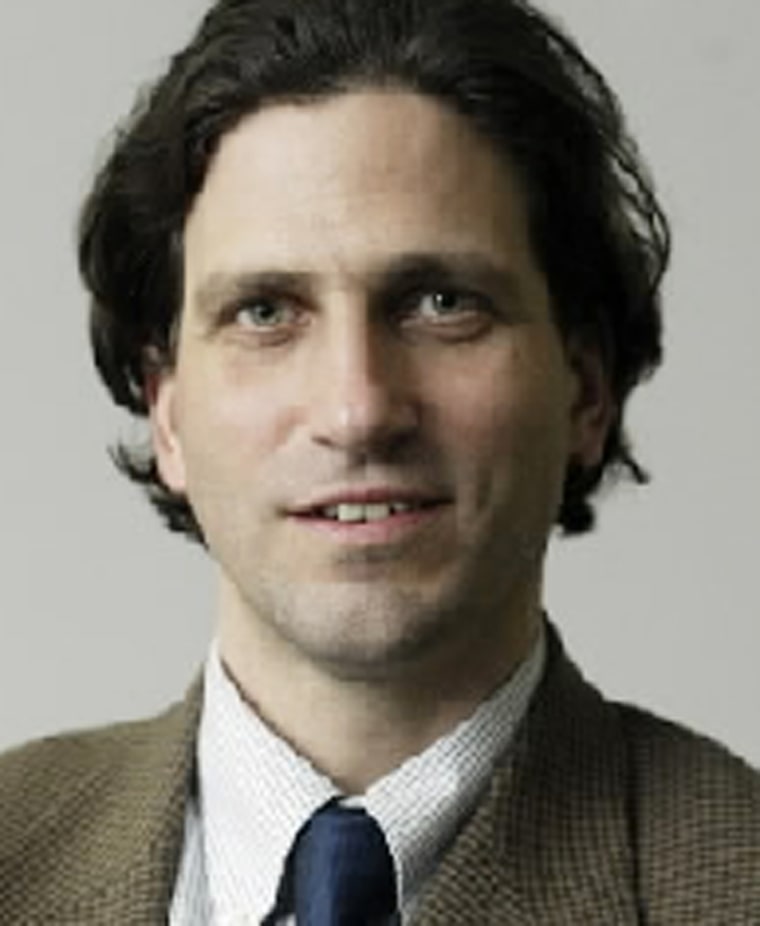When Paul Klebnikov, the assassinated editor of the Russian edition of Forbes, arrived in Moscow to launch the magazine earlier this year, he was excited to be back on his old reporting beat. He saw his ancestral homeland, after years of crime-infused chaos and government corruption, moving forward under a strong leader, President Vladimir Putin.
But Klebnikov's optimism appears to have clashed with the hard reality of Russia, which he hoped had matured beyond the kind of cold-blooded contract hit that took Klebnikov's life a week ago.
Friends and family describe Klebnikov spending his last months dedicated to covering Russia's emerging economic transparency, after a decade of insider deals that put the biggest Russian businesses in the hands of a well-connected few.
"He was actually very upset at all the negative press and negative image Russia was getting abroad, and he felt that it was his duty in some ways to write about some of the more positive aspects of what was going on in Russia," said Boris Jordan, a Moscow businessman and friend of Klebnikov's.
Still, while at the helm of Forbes Russia, the 41-year-old pulled no punches — making one of his first issues a ranking of Russia's 100 richest businesspeople, many of whom have close ties to the government.
Jordan, who led the charge of Western-educated investors capitalizing on the post-Soviet landscape, says Russia's super rich think their money is their personal business.
"There's hesitancy toward transparency in Russia," Jordan said. "People prefer to just stay in the dark."
Klebnikov's brother, Michael, in comments widely echoed in opinions in the Russian media, said Russians "who have things to hide don't like the light."
He continued to say his brother believed "what Russia's now ready for is an open and lively debate on issues that matter to the country."
Unwelcome attention
The Forbes Russia list, like the magazine's other rankings around the world, is often written with light humor. While the magazine digs deep to find sources of wealth, its findings are presented in a straightforward way.
But after the imprisonment last year of Russia's richest man, oil magnate Mikhail Khodorkovsky, now in court facing fraud and tax evasion charges, being rich in Russia is a sensitive matter. Many Russians blame their economic woes on the country's well-heeled class, and a tally of its fortunes could be seen by millionaires and billionaires as unwelcome.
One of Klebnikov's most pursued topics — the relationship between big business and the government — is a subject largely ignored by Russian television channels, which air Kremlin controlled newscasts. Some newspapers and radio stations cover the issue aggressively, but their limited, localized audiences are a little headache for the government.
In his last interview, given to a Russian newspaper report the day he died, Klebnikov spoke of Putin's "presidential buddies."
"The wealthy men who are quite close to the corridors of power ... enjoy certain preferences and privileges," he said.
While there's no suggestion of any official involvement in Klebnikov's death, it comes during a press crackdown in Russia.
At NTV, a formerly independent network, management loyal to the Kremlin canceled the country's last political talk show just hours before Klebnikov's death. Hosted by Savik Shuster, the program, "Freedom of Speech," saw its ratings surge during lively debate — apparently too much of it for the authorities.
"It's not a good time to be a journalist," said Leonid Parfyonov, another NTV host whose show was taken off the air for broadcasting an interview with the widow of a former rebel leader in Chechnya, the breakaway Russian republic.
Parfyonov, whose show garnered top ratings, said he "knew it was coming." Another former NTV journalist, Yevgeny Kiselyov, once Russia's most respected and outspoken TV anchor, said the Kremlin acts like an executive producer.
"Very often the Kremlin calls the editors of this or that channel. And then they relay their advice. It's always in the form of insistent advice," Kiselyov said.
Dangerous business
As Klebnikov's death has shown, journalism in Russia is also dangerous. Over the last decade, 20 reporters have been killed, 14 since Putin became president. None of the cases has been solved.
During his work in Russian in the 1990s, Klebnikov was known to travel with security. But the burden was too much, and his enthusiasm for Russia's transformation to a more European-style country gave him more reason to return to what his friend Boris Jordan calls Klebnikov's "democratic roots" — taking the subway and driving his own car to work.
When he returned to Russia to launch Forbes, Jordan said Klebnikov never indicated he had a bodyguard, or had reason to fear for his life. In his dying moments, just yards from his office, he told a fellow journalist he could not imagine who wanted him dead.
"He loved (Russia) deeply," Michael Klebnikov said.
